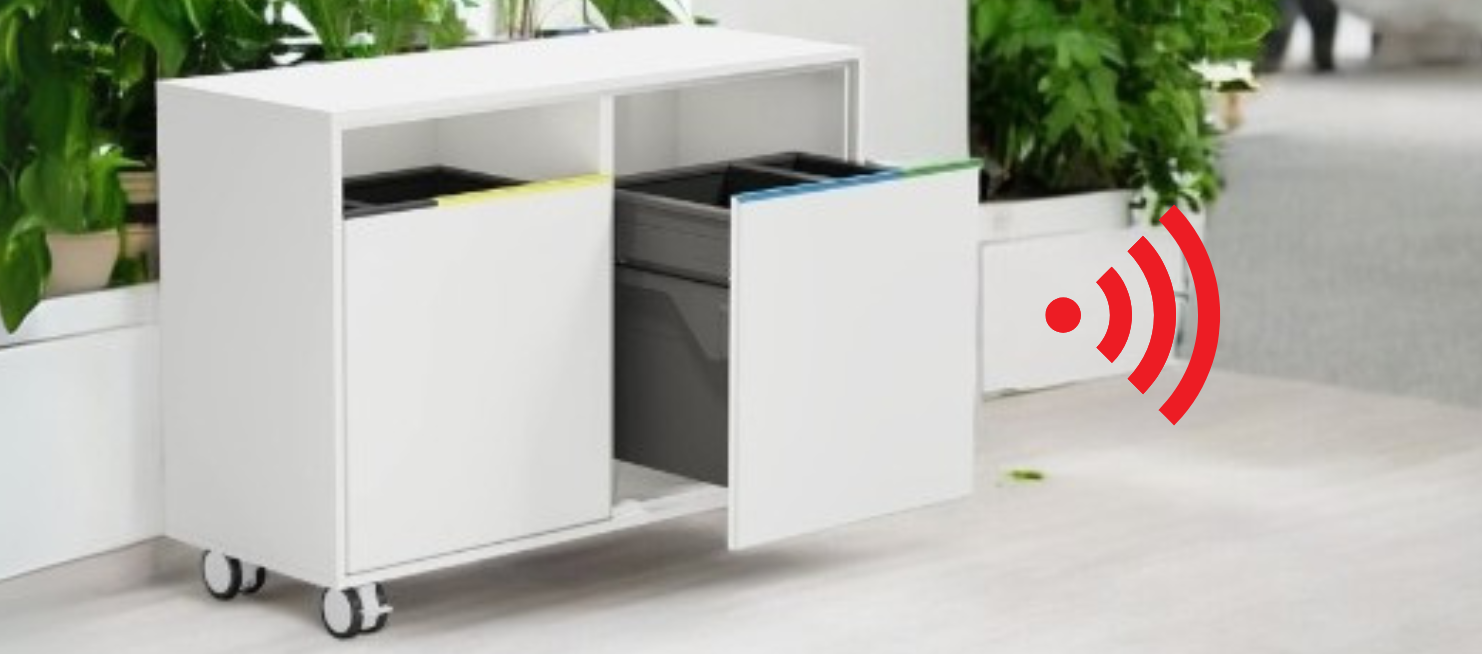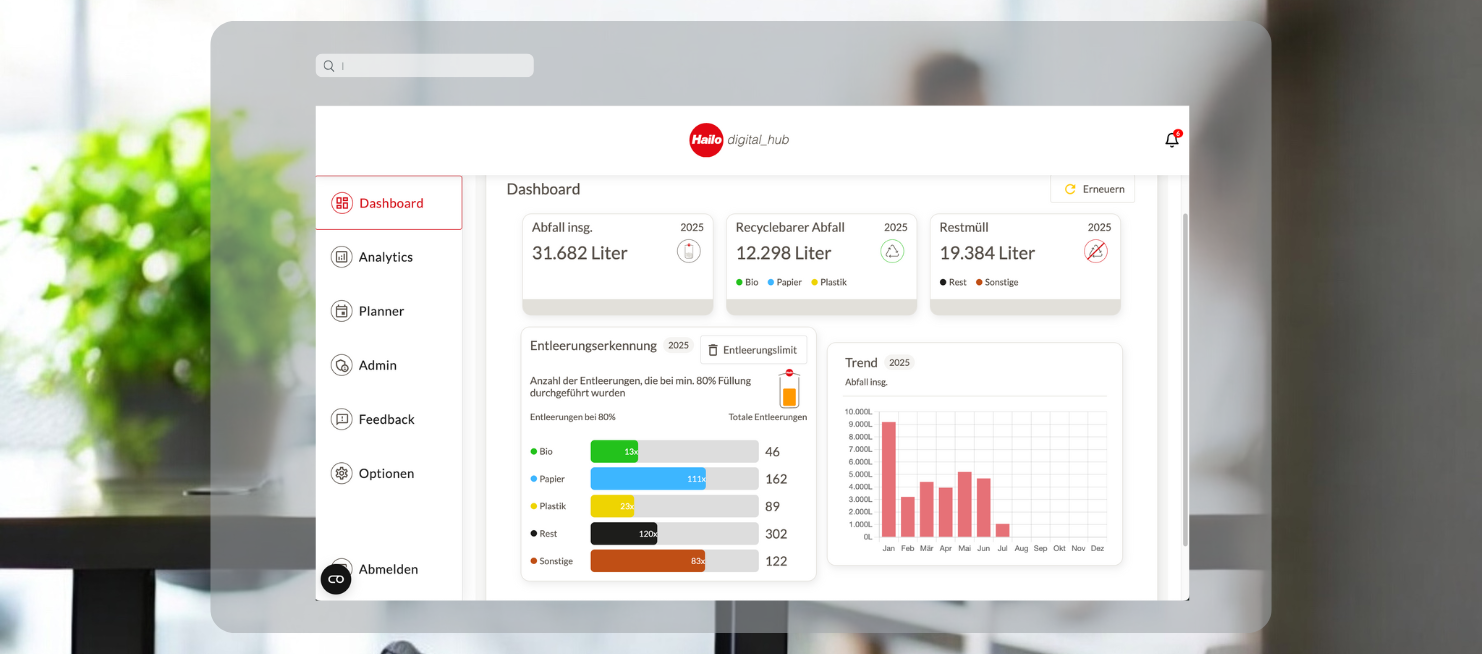How Digitalization Is Redefining Commercial Cleaning Jobs

Digital transformation is reshaping not only how companies operate, but also how entire professions look and function. One of the clearest examples of this shift can be found in the field of commercial cleaning. Many of the tasks performed today are still repetitive and manual, for example emptying bins, inspecting rooms according to rigid schedules, and documenting work by hand. But this job profile is beginning to change. Digital systems are gradually taking over routine activities, creating space for new responsibilities and opportunities for cleaning staff.
IoT sensors are already eliminating the need for manual control rounds. Instead of emptying bins when they are not completely full, sensor data is sent directly to the Smart Waste dashboard, providing real-time insights. Cleaning on demand replaces fixed schedules and ensures that cleaning happens only when it is needed. As a result, monotonous steps are eliminated, physical strain is reduced, and staff have more time for tasks that truly contribute to service quality.
How the Role of Cleaning Staff Is Evolving
- Less repetitive work, such as unnecessary bin checks and routine emptying
- Higher responsibility in handling digital tools and mobile applications
- New tasks focused on quality assurance and client communication
- Upskilling opportunities in areas like data analysis and facility management
The future of facility services is more diverse, forward-looking, and engaging than ever. Cleaning professionals are evolving into facility experts who work confidently with digital tools, interpret data, and ensure high-quality service delivery. This opens up new opportunities for employers to attract and retain talent. A job once perceived as monotonous becomes a modern, tech-enabled career path, which appeals especially to younger generations who seek meaningful, future-ready work.
For companies, digitalization provides a strategic response to growing labor shortages. As digital systems take over basic, time-consuming tasks, staff can be deployed where their expertise adds the most value. At the same time, service quality improves - a critical differentiator in an increasingly competitive facility services market.
The future of facility management is digital, dynamic, and more people-centered. Businesses that invest in digital systems will relieve the pressure on their teams, boost motivation, and lay the foundation for a more efficient, sustainable, and attractive workplace.










